VA Disability Compensation For Sleep Disorders
Sleep disorders can be caused by blunt head trauma or psychological and mental disorders brought on by, or aggravated by, military service. These sleep disorders can cause a great deal of pain and suffering for veterans. Types of sleep disorders include:
- Insomnia: Veterans suffering from this disorder have difficulty falling asleep and/or staying asleep for more than a few hours. Insomnia may lead to drowsiness, irritability and a depressed mood or disposition.
- Obstructive Sleep Apnea: Can cause breathing to stop or limit it during sleep, either for a matter of seconds or several minutes. Sleep apnea will cause fatigue, slower reflexes and over time, impact the heart—leading to problems like arrhythmia and cardiac arrest.
- Narcolepsy: Veterans suffering this condition are fatigued during the daytime, regardless of the number of hours they slept during the night prior. This causes sudden daytime loss of consciousness and cataplexy, an episodic loss of proper muscle function including everything from sagging facial muscles to total physical collapse.
- Daytime somnolence or excessive daytime sleepiness (EDS): This is linked to all the disorders mentioned above but can be diagnosed by itself. Veterans with EDS feel excessively drowsy during the day and regularly feel unable to avoid taking naps at inappropriate times and places.
Sleep apnea is a common among the veteran population. Veterans are four times more likely to develop sleep apnea. PTSD (post-traumatic stress disorder) and traumatic brain injuries (TBIs) have been shown to increase the chances of a veteran developing a sleep disorder. If a veteran develops sleep apnea during military service, he or she could be eligible for VA Disability Compensation.
How Do You Prove Sleep Apnea Resulted From An In-Service Illness, Injury, Or Traumatic Event?
Sleep apnea is not a presumptive condition for veterans exposed to Agent Orange or ionized radiation, or contaminated water at Camp Lejeune. Veterans of the Persian Gulf War could be entitled to a presumptive status of service-connection for sleep apnea. The VA’s regulation concerning Persian Gulf War veterans, 38 § C.F.R. 3.17, states sleep apnea is categorized under “sleep disturbances” as an undiagnosed illness and medically unexplained chronic multisymptomatic illness.
Veterans can prove service-connection for sleep apnea by showing their sleep apnea began in service using medical records, or by providing a nexus opinion from a certified medical professional linking a current diagnosis of sleep apnea to signs or symptoms experienced in service.
Additionally, veterans can achieve service-connection for sleep apnea on a secondary basis. Establishing a secondary service-connection involves proving your sleep apnea is secondary to, or a residual effect, of a separate condition.
How Does The VA Evaluate Sleep Apnea?
The VA evaluates sleep apnea under 38 C.F.R. § 4.97-13, Code 6847 as Sleep Apnea Syndromes (obstructive, central, mixed). The lowest possible rating, 0 percent, does not qualify a veteran for VA monthly compensation, but veterans are eligible for other benefits, like healthcare. The highest rating, 100 percent, signifies total disability and makes the veteran eligible for the highest schedular amount of VA monthly compensation.
Per 38 C.F.R. § 4.97-13, Code 6847, the ratings for obstructive, central, or mixed sleep apnea are as follows:
- 100 percent rating awarded for “chronic respiratory failure with carbon dioxide retention or cor pulmonale, or; requires tracheostomy.”
- 50 percent rating requires “use of a breathing assistance device such as” a CPAP machine.
- 30 percent rating requires “persistent day-time hypersomnolence.”
- 0 percent rating awarded for asymptomatic sleep apnea with “documented sleep disorder breathing.”
The monthly benefit for each rating:
- 30 percent disability rating: $428.83 per month
- 50 percent disability rating: $879.36 per month
- 100 percent disability rating: $3,057.13 per month
These ratings are up to date as of July 16, 2019. A rating of at least 30 percent or higher qualifies you for additional compensation if you have a spouse, dependent children, or dependent parents living in your home.At Centonzio Law, we are committed to providing quality and effective legal representation to the brave men and women of the U.S. Armed Forces. Centonzio Law has years of successful experience advocating for veterans on their VA disability appeals, including those diagnosed with sleep apnea and other sleep disorders. We want to lend our experience to help you with your appeals. If you filed a sleep disorder claim and the VA denied it, contact us for help with the appeals process. We provide free consultations to veterans nationwide.
